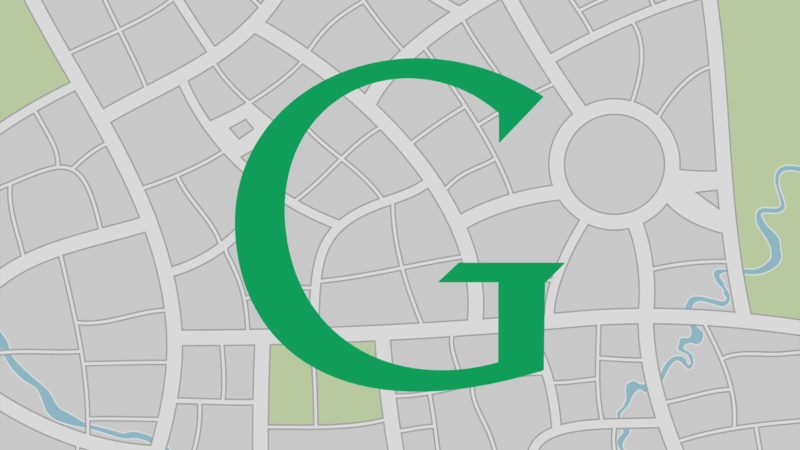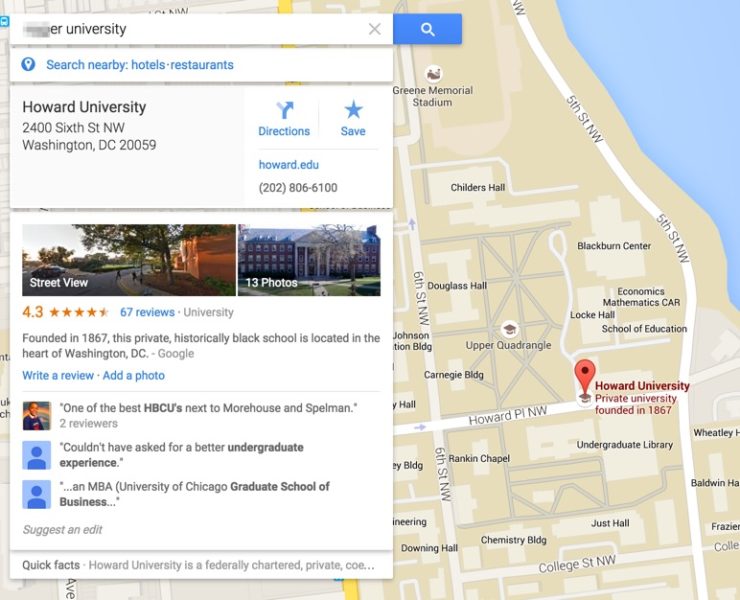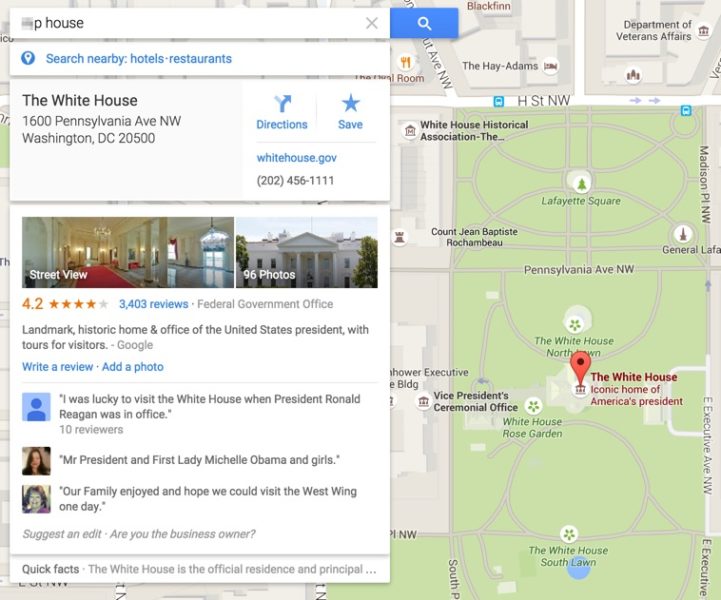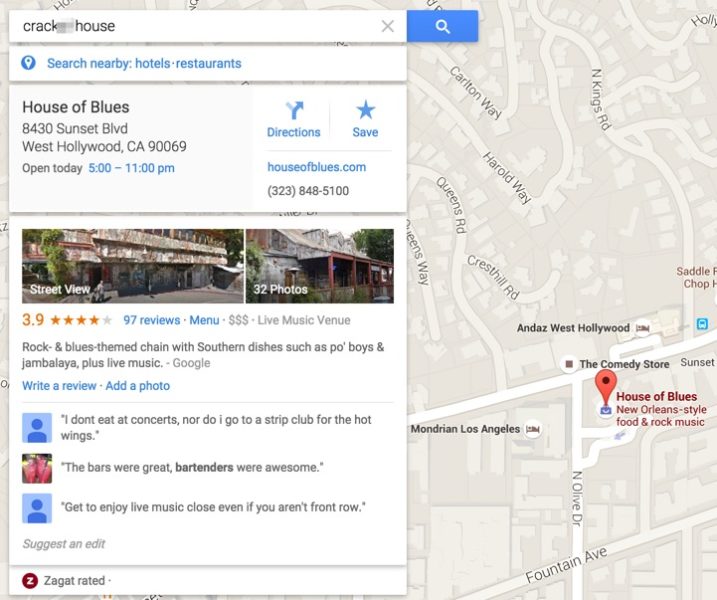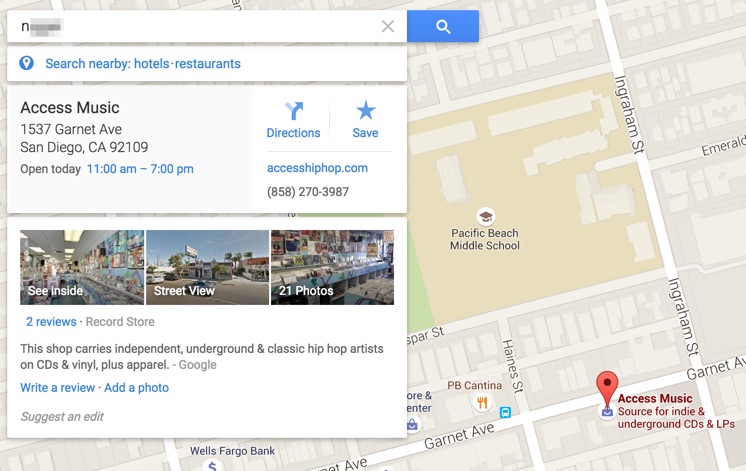Racist Listings In Google Maps That Will Shock You & Why They May Be Happening
Once again, Google Maps is in the news for inappropriate listings. However, it might not be overt hacking to blame but instead crowdsourcing that's not properly filtered.
Search for some slurs against Blacks, and Google Maps is returning The White House and Howard University right now. Another example of the map hacking that’s plagued the service recently? Maybe. But it might also be a symptom of a broader problem with how Google is using web-wide data to help crowdsource its mapping product.
Let’s go through some examples that illustrate the problems Google is having, then we’ll explore possible causes at the end.
The White House & N—- House
This is the search that’s generated most attention this week. Search for “n–ga” house and the White House appears. This happens for me even when I’m based in Southern California. I get zoomed right to the White House.
Also, let me apologize up front for even searching for any of the words used in this article. They’re distasteful. But it’s unavoidable to use them in discussing the problem.
Howard University & N—– University
If you’re in the Washington DC area or have your map centered in that area, a search for “n—-r university” will bring up Howard University.
Hispanic Link DC & W—ack
If you’re in or centered on the DC area, searching for the slur w—ack against Hispanics and Latinos brings up Hispanic Link, an advocacy group.
White House & N– House
Search for the slur against Asians, “–p” plus house, and you get the White House, if you are in Washington DC or centered in that area.
White House & —neck House
If you’re in the Washington DC area or have your map centered around it, a search for “—neck house” brings up the White House. Plenty of Whites don’t consider the term derogatory and may even embrace it, but I’m treating it the same way as slurs for other races in this article.
What’s Going On?
Some have assumed that the example getting the most discussion is the result of map spam, perhaps because Google has allowed anyone to edit its maps, until recently. That’s how we ended up with that Android peeing on the Apple logo last month. In reaction, Google closed its Google Map Maker service.
That remains closed. Moreover, Google has told Marketing Land that Map Maker is not to blame in the examples that have come to light this week. Google’s still investigating the cause and promising to get back to us. But we can do some speculation now.
The many examples of how the White House ranks for various slurs against different races immediately suggests that this isn’t a case of someone somehow altering the map records of the White House. Something else is likely going on.
To figure that out, consider also this:
If you’re in the Washington DC area or have your map centered around it, searching for “bulls–t” lists the White House first followed the US Supreme Court. That’s not an ethnic or racial slur, yet these places are deemed relevant to this derogatory statement.
In another example, a search for “crack– house” from my location in Southern California brings up the House Of Blues:
Now consider what I get for a search for the n-word from Southern California:
It’s a music store in San Diego, specializing in hip hop artists.
Blame Reviews?
Does anyone think some third-party hacked Google Maps to make this music store show up this way? I sure don’t. Instead, there are two likely culprits:
- Use of words in reviews
- Use of words in links
Google allows anyone to review places for Google Maps. It could be that some people are making use of slurs and derogatory comments about places in those reviews, which in turn causes those places to become relevant for them.
In looking over reviews for Howard University, reviews don’t seem to be the cause of what’s happening in that situation. However, Google could be looking at third-party reviews and associated content from third-party review sites, causing this.
Blame The Web & Links?
Personally, I think what’s happening is that people are referring to particular places in blog posts and other content that Google finds on the web. Google sees someone calling the White House “n—– house” in a post, perhaps one that links to the official site or the place location in Google Maps, and it associates those terms with the location. It could be that even if there’s no link, Google’s Knowledge Graph compiles these “facts” about the White House in the same way it makes other types of embarrassing mistakes.
In particular, last year Google launched what’s known to search marketers as the Pigeon Update. This new technology was designed to help Google unify what people were saying about local places across the web with what it knew about them more formally from reviews and business owner submissions.
In short, Google greatly increased the degree of crowdsourcing it was doing about local places, in hopes that it could better locate those places for words and phrases that might not have been included in often short descriptions submitted by business owners.
My guess is that we’re now seeing a downside of this crowdsourcing. It’s not hard to make something show up for all type of embarrassing or derogatory terms. For those in the DC area, or searching around that area, this also means you can make it happen to high-profile places like the White House.
Again, we’re waiting to hear back from Google on the exact cause. It could be that there’s some type of overt actions happening, in some cases. It also doesn’t excuse Google for not finding ways to prevent these types of situation. But it may not be that someone has just gone after places in the way that we’ve seen with other types of map spam.
Postscript from Greg Sterling: We reached out for second opinions to a range of maps and local SEO experts including Joy Hawkins, Mike Blumenthal, David Mihm, Will Scott, Adam Dorfman, Greg Gifford, Mary Bowling and Andrew Shotland. Not everybody weighed in equally but the consensus appeared to be consistent with the theory above.
As discussed, Google Maps has been trying to associate keywords and citations with places whereas in the past Maps did not do this with consistency. Accordingly, Google Maps now returns results that reflect the highest-ranking place associated with specific terms or keywords.
Unfortunately, then, these racist terms have been used widely enough on the web to connect them with these places. Adam Dorfman suggested that this be called “citation bombing.” And Andrew Shotland points out this page on Wikipedia may have had an influence on the “n-word” White House connection.
We’re hopeful that Google will confirm or clarify what’s going on soon.
Postscript #2: Here’s Google’s full statement on the matter and what the company is doing to address the issue:
This week, we had some problems with Google Maps, which was displaying results for certain offensive search queries. Like many of you, we were deeply upset by this issue, and we are fixing it now. We apologize this has taken some time to resolve, and want to share more about what we are doing to correct the problem.
At Google, we work hard to bring people the information they are looking for, including information about the physical world through Google Maps. Our ranking systems are designed to return results that match a person’s query. For Maps, this means using content about businesses and other public places from across the web. But this week, we heard about a failure in our system—loud and clear. Certain offensive search terms were triggering unexpected maps results, typically because people had used the offensive term in online discussions of the place. This surfaced inappropriate results that users likely weren’t looking for.
Our team has been working hard to fix this issue. Building upon a key algorithmic change we developed for Google Search, we’ve started to update our ranking system to address the majority of these searches—this will gradually roll out globally and we’ll continue to refine our systems over time. Simply put, you shouldn’t see these kinds of results in Google Maps, and we’re taking steps to make sure you don’t.
Again, we sincerely apologize for the offense this has caused, and we will do better in the future.
Postscript 2: See our follow-up story here, Google To Implement Googlebomb Fix To Prevent Racist Listings In Google Maps.
Opinions expressed in this article are those of the guest author and not necessarily MarTech. Staff authors are listed here.
Related stories
